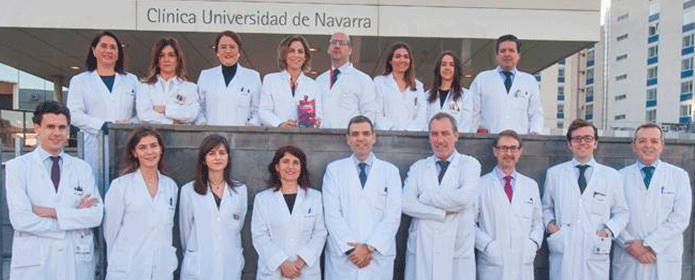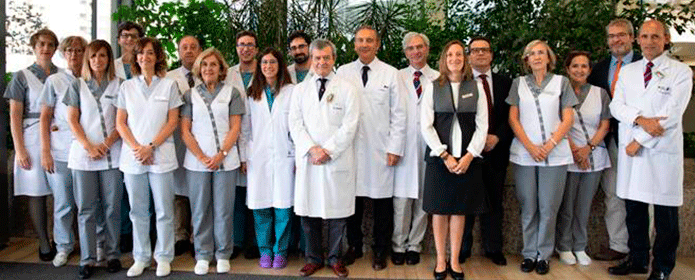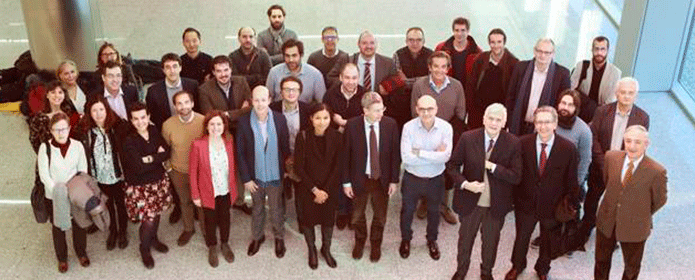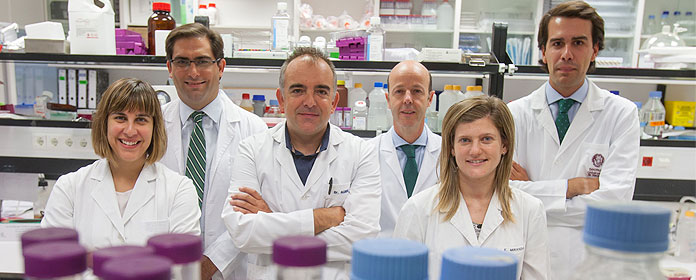CART Cells treatment is sample very effective in some leukemias and lymphomas.
Nearly 250 specialists attended the IV edition of the update on 'Hematology in 48H' organized by the department de Hematología y Hemoterapia de la Clínica Universidad de Navarra
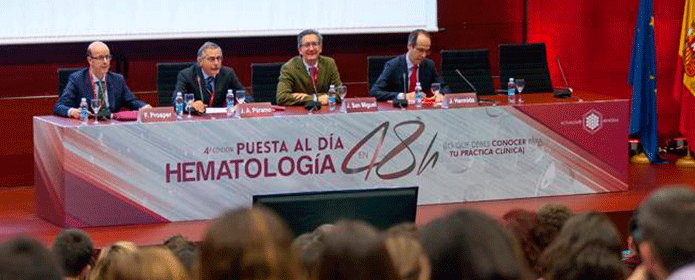
The employment of CART cells is changing cancer treatments, especially in hematological tumors for which it has demonstrated its efficacy. This new cellular immunotherapy procedure was one of the topics addressed at the 4th edition of the conference update on 'Hematology in 48h' held in Pamplona on March 14-15.
Organized by the department of Hematology and Hemotherapy of the Clínica Universidad de Navarra, the conference brought together nearly 250 specialists and residents who discussed the latest therapeutic developments and the current status of the main hematological diseases such as leukemia, lymphoproliferative syndromes, monoclonal gammopathies, anemias and thrombosis.
Likewise, the current role of hematopoietic progenitor transplantation and the laboratory of Hematology have been studied together with the presentation of clinical cases related to hematologic emergencies.
To this end, more than 30 top-level speakers from all over Spain gave lectures focused on both diagnosis and, in particular, advances in treatment. "A global vision of the field has been given in both diagnostic and therapeutic aspects so that residents and specialists obtain the knowledge of the specialization program", recognizes Dr. José Antonio Páramo, co-director of the department of Hematology and coordinator of the conference together with Drs. Felipe Prósper, co-director of the department of Hematology of the Clinic and of the area of Hemato-Oncology of the Cima University of Navarra, and Jesús San Miguel, director of Clinical and Translational Medicine of the University of Navarra.
Update on CART Cells therapiesThe clinical application of cell therapy, specifically analyzing the role of CART Cells, has been one of the main novelties of this course, since its employment has been shown to be particularly effective in patients with leukemia, lymphoma and myeloma. This has been corroborated by the professionals attending this workshop.
T cells are a subject cell of the patient's immune system. CART Cells therapy consists of modifying these immune cells so that they are capable of attacking tumor cells.
A team at Clínica Universidad de Navarra has begun to treat patients with this cell therapy, which has so far proven effective in very advanced stages of multiple myeloma, within an international research .
However, the employment of CART Cells is being studied in earlier stages of the disease or in situations of minimal residual disease. "We are doing research to be able to use these treatments in earlier stages, which is very attractive," says Dr. San Miguel.
Precisely, during the sessions, the latest advances in treatment and research of this therapy, which has demonstrated "extraordinary" efficacy in patients with relapsed or resistant acute lymphoblastic leukemia and non-Hodgkin's lymphoma, and the lines that are being opened to expand the use of CART Cells, have been shared.
"The effectiveness of this treatment in certain cases raises the question of whether CART Cells will replace hematopoietic stem cell transplantation in a few years or whether they will be used as a bridge treatment to achieve excellent disease remission," said Dr. Alvaro Urbano, a specialist at Hospital Clínic de Barcelona, in his presentation on the role of CARTs.
CART Cells research is currently growing not only in search of new applications but also with the aim of carrying out "a more prolonged follow-up of the clinical evolution of patients already treated with this therapy", goal .

